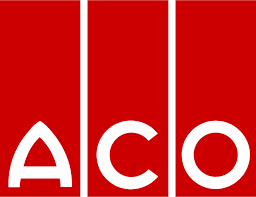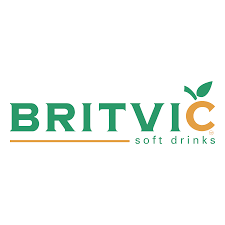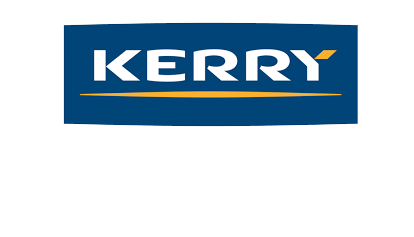
- Details
- Category: Blog
In our work helping organisations to improve effectiveness, we find that the most common causes of lost performance, defects and waste are front line skill and knowledge gaps.
What are the Risks
Recent research shows that the lack of effective skill development is a reason for people to seek alternative employment.
In addition, government research indicates that around 2/3rds of manufacturing companies don't feel that their skill development process is able to meet business development priorities. In other words skill gaps are a significant inhibitor to organisational growth and operational improvement.
So exactly what skills are missing and what does it take to break out of that situation?
Skill Development Deficiencies
The above research indicates that the top skill development deficiencies are the ability to:
- Improve flexibility
- to reduce the impact of skill shortages and reliance on a few key individuals.
- Transition people into emerging roles
- due to the use of advanced technology which changes how work is done.
These deficiencies are characteristics of poorly designed skill development processes that do not apply Learning Science best practice. For example:
Fragmented Knowledge
If a task is learned in isolation it will not be easily recalled when needed and may need to be relearned. This is known as fragmented knowledge
Learning Science: The mind stores information in clusters. When new learning is easily linked to current knowledge, the learning process is quicker and easier to apply.
To avoid this, subject matter should be learned in a logical order, step by step.
Start with the development of underpinning knowledge, This will set out the learning landscape and reinforce how each task relates to the added value of the overall process.
That impacts both on the desire to learn and the motivation to carry out critical tasks correctly.
Poor Compliance
Things most recently learned are best remembered. Conversely, past training is more difficult to remember where tasks are carried out infrequently. In addition, where best practice standards are not reinforced with feedback, the risk of error and poor compliance is increased.
Learning Science: The mind can rarely retain and apply new concepts or practices after a single exposure but every time practice occurs, learning continues.
To avoid this back up training with real world application that makes full use of the senses (hearing, sight, touch, taste, smell, balance, rhythm, depth perception, and others) to increase the intensity of the learning experience.
Set up the learning situation in such a manner that each trainee will be able to see evidence of progress and receive positive feedback for successful achievement of competency steps.
Support compliance by encouraging feedback on ideas to systemise work routines and highlight weak, missing or complex work routines.
Skill Development Best Practice
The building blocks of Best Practice Skill Development are methods developed around skill categories such as:
- Core tasks - repetitive activities that are used frequently such as cleaning, recording, set up.
- Intermediate tasks - Activities made up of tasks involving rule based decisions about how to proceed to account for special conditions such as predictable but abnormal circumstances.
- Specialist tasks - Activities requiring significant judgement and experience such as troubleshooting or complex infrequently completed processes.
The use of these categories signposts pathways for learners and supports self enabled learning. It also ensures that working methods for routine tasks are refined to meet core task criteria using improvement tools such as visual management and workplace organisation to reduce the need for technical judgement.
The most common reason why this does not happen is the lack of a common skill set for those involved in defining:
- What is to be done
- What needs to be learned and by whom
- How is it to be learned, in what order and to what standard
- How to evolve work routines so that they are easy to do right, difficult to do wrong and simple to learn.
How to Improve Skill Development
Raise awareness of skill development barriers and skill development competencies that are part of the stakeholder roles set out in table 1 below.
Use this to engage with the need for action and to agree a prioritised hit list of troublesome areas.
Agree a first step improvement goal for the initial/pilot area such as:
- Prevent of lost performance due to mistakes and lack of knowledge.
- Resolve skill gaps and free up specialist resource.
- Improve workforce flexibility.
- Enhance the capture and transfer of lessons learned.
- Engage the workforce with self development.
Identify a small team to work on delivering the selected goal and enhance the capability of those in that areas.
Treat this as a pilot activity to surface and deal with barriers to progress.
Use the lessons learned from the pilot activity to develop and roll out enhanced skill development skills.
Skill Development Stakeholders
|
Best Practice Area |
Barriers to Learning and Knowledge Development |
Skill Development Competencies |
|
|
Asset Specialists |
Method Development |
|
How to analyse work routines and create methods that are easy to do right, difficult to do wrong and simple to learn. |
|
Production Engineering & CI Personnel |
Standardisation |
Weak or unclear standards resulting in complex, incomplete or duplicate work routines for similar tasks. |
How to standardise common tasks to aid apply core competencies across multiple work situations and speed up the learning process. |
|
Trainers and L&D Practitioners |
Learning pathway design and delivery |
The lack of task skill categories and team skill profiles leads to an overdependence on key workers, extends the skill development time and makes it difficult to release people for training. |
How to identify categorise individual and team skill profiles, set development priorities and implement learning plans. |
|
Front line Leaders and Planners |
Capture and transfer of lessons learned |
Lack of or weak feedback on working methods is a barrier to dealing with knowledge gaps, weak methods and the simplification of routine tasks. |
How to systemise work routines to minimise the need for instruction and opportunities for error. |
Table 1: Stakeholder Capabilities for Skill and Knowledge Development
You might want to consider using our 2 day Front Line Skill Development training workshop to home in on areas for improvement and define the agenda for discussion about next steps. Click on the link or contact us for more details of how we can help internal stakeholders to enhance skill development capabilities.








